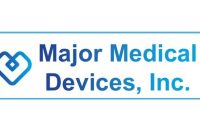The VENOS-2 prospective, multicenter study is being performed under an Investigational Device Exemption (IDE) granted by the FDA and will evaluate the feasibility of the company’s Velocity pAVF System which is designed to enable a minimally invasive approach for the creation of an AV fistula for hemodialysis vascular access.
LOS GATOS, Calif., Jan. 15, 2025 /PRNewswire-PRWeb/ — Venova Medical, a privately held company developing a next generation technology for the creation of percutaneous arteriovenous fistulas (pAVF) for hemodialysis access, announced today the enrollment of the first participants in the company’s VENOS-2 early feasibility study (NCT06712251) of the Velocity pAVF System, marking a significant step forward in the development of this innovative technology. The VENOS-2 study, performed under an Investigational Device Exemption (IDE) granted by the FDA, will enroll up to 25 subjects at up to six U.S. clinical sites to evaluate the feasibility of the company’s Velocity pAVF System which is designed to enable a minimally invasive approach for the creation of an AV fistula for hemodialysis vascular access.
Rashid Sharaf, MD, FASDIN, an interventional nephrologist at the STAR Vascular Access Center in San Antonio, Texas, who specializing in dialysis access management, performed the procedures. “I am excited to participate in the VENOS-2 study and to evaluate the Velocity System as a next generation alternative for the creation of percutaneous AV fistulas,” said Dr. Sharaf. “Percutaneous AV fistulas offer a minimally invasive alternative to surgical approaches and provide a potentially better option for shorter time to fistula creation and maturation, which can lessen the exposure to, and risks associated with, hemodialysis catheters.”
The Velocity System is designed to create a pAVF in an efficient, minimally invasive procedure, to address patient and system barriers that often result in patients starting hemodialysis with central venous catheters. The Velocity implant is also designed to maximize the ability to use the fistula on hemodialysis soon after creation and to minimize the need for follow on procedures, thus addressing some of the major shortcomings with surgical AVFs.
“The launch of the VENOS-2 study is an important milestone in our mission to provide safer, more effective and more durable vascular access solutions for the hemodialysis population,” stated Erik van der Burg, CEO and Co-founder of Venova Medical. “The outcomes of the VENOS-2 study will build on our First-In-Human experience with the Velocity System and will be used to support our U.S. pivotal study IDE. We are immensely grateful to Dr. Sharaf and his team for their support in enrolling the first subjects of the VENOS-2 study.”
About Venova Medical
Venova Medical, Inc. is a privately held company addressing the challenges associated with providing optimal vascular access for patients needing hemodialysis. The company has developed the Velocity System, a next generation percutaneous AVF technology designed to reduce the need for reinterventions to achieve fistula maturation and improve vascular access outcomes while reducing costs. The company is currently conducting the prospective, multi-center, single-arm VENOS-2 IDE clinical study (NCT06712251) which is evaluating the safety and feasibility of Velocity System in subjects on hemodialysis who are candidates for arteriovenous fistulas.
For more information, visit www.venovamedical.com
Contact
Erik van der Burg
Chief Executive Officer
Venova Medical, Inc.
Email: evanderburg@venovamed.com
Tel: +1.408.242.5897
Media Contact
Erik van der Burg, Venova Medical, 1 (408) 242-5897, evanderburg@venovamed.com, www.venovamedical.com
SOURCE Venova Medical






